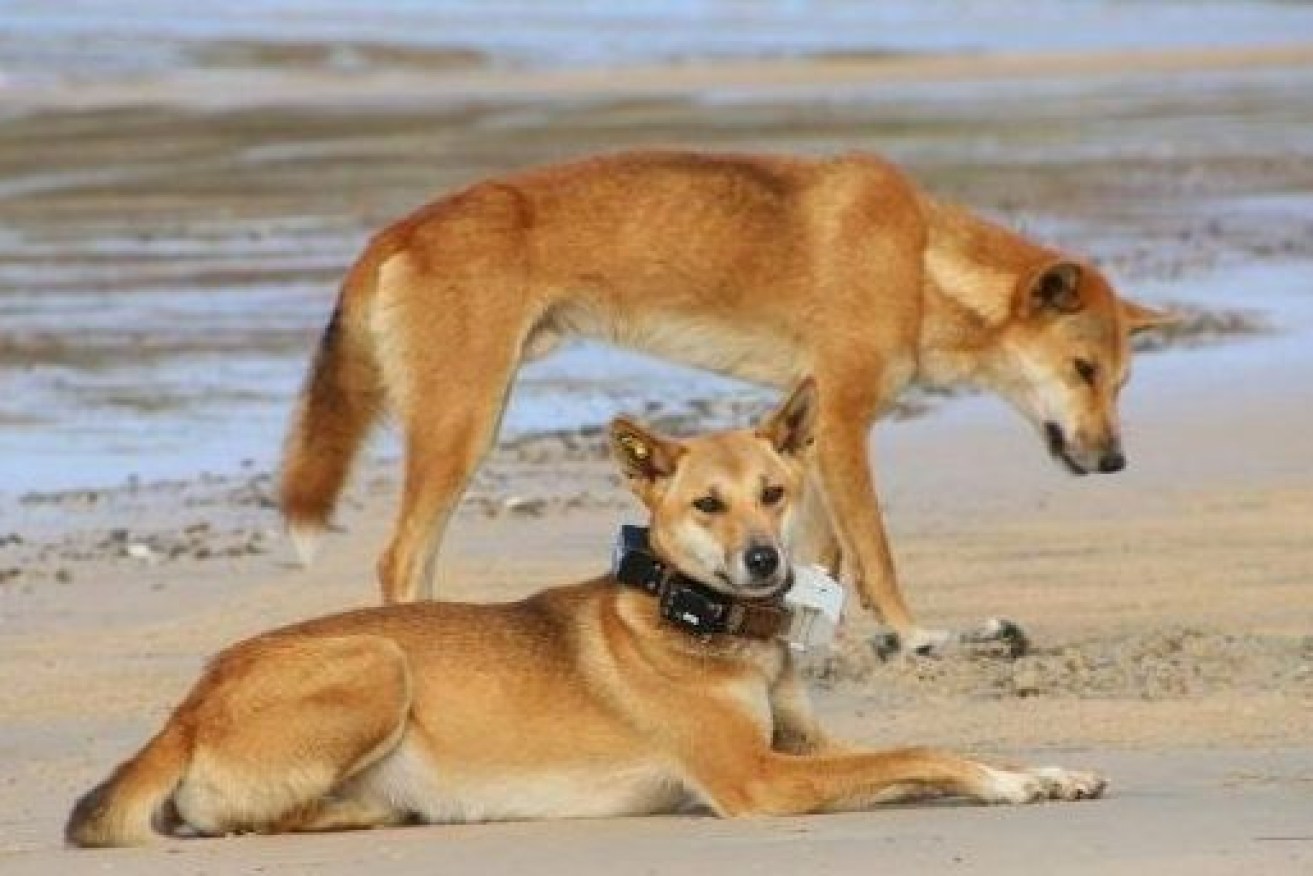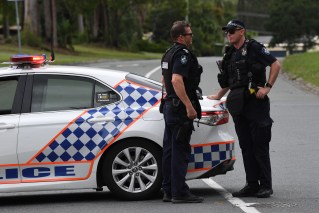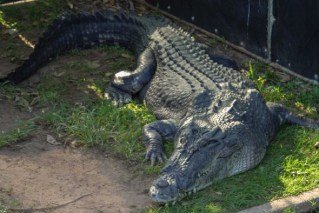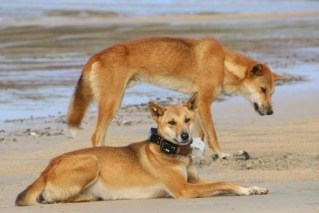They work on humans, but K’gari dingoes might be too smart for our tracking collars
A tracking collar has been fitted on a dingo displaying concerning behaviour on a popular Queensland tourist spot – but so far the animal is staying a step ahead of K’gari rangers.

Two dingoes on the beach at Fraser Island-K'gari last year, with one wearing a GPS tracking collar.. Photo: ABC
Rangers will monitor the dingo for two months after discovering she had been able to enter a fenced off township on the island of K’gari, formerly Fraser Island.
There have also been regular reports of the dingo displaying “high-risk behaviour” including stalking and dominance testing.
Rangers hope the GPS tracker will help them discover where the dingo is breaching the fence line around the township of Eurong.
“Rangers have spent considerable time maintaining the fence line and monitoring the dingo’s movements daily,” the Department of Environment, Science and Innovation’s Dr Linda Behrendorff said.
“The collar will provide regular updates that will help rangers with risk mitigation activities such as increased patrolling and education of people around her.”
The tracker has been fitted after a spate of dingo incidents on the island.
A tagged dingo bit an 18-year-old woman on the back of her left leg when she was part of a tour group walking to Lake Wabby on February 17.
Hours later a person on a separate tour was nipped while walking on the beachfront near Dilli Village, marking six dingo incidents in as many weeks.
A tagged dingo that attacked two children and a man on the island was put down in January.
Rangers said research showed people tended to keep their distance from collared dingoes.
But they have urged people in the Eurong area to be “dingo-safe” after fitting the latest GPS tracker.
“This includes always carrying a stick, never walking alone and parents and carers keeping their children close at all times,” Dr Behrendorff said.
GPS collars have been used on K’gari for dingo tracking and research since 2011.
The collar fitted on the dingo last week will automatically fall off after two months.
“Previously the tracking collars have not disadvantaged or restricted the dingoes, but experienced rangers will closely monitor its condition across the next two months,” Dr Behrendorff said.
Dingo encounters on K’gari should be reported to Queensland Parks and Wildlife Service.












